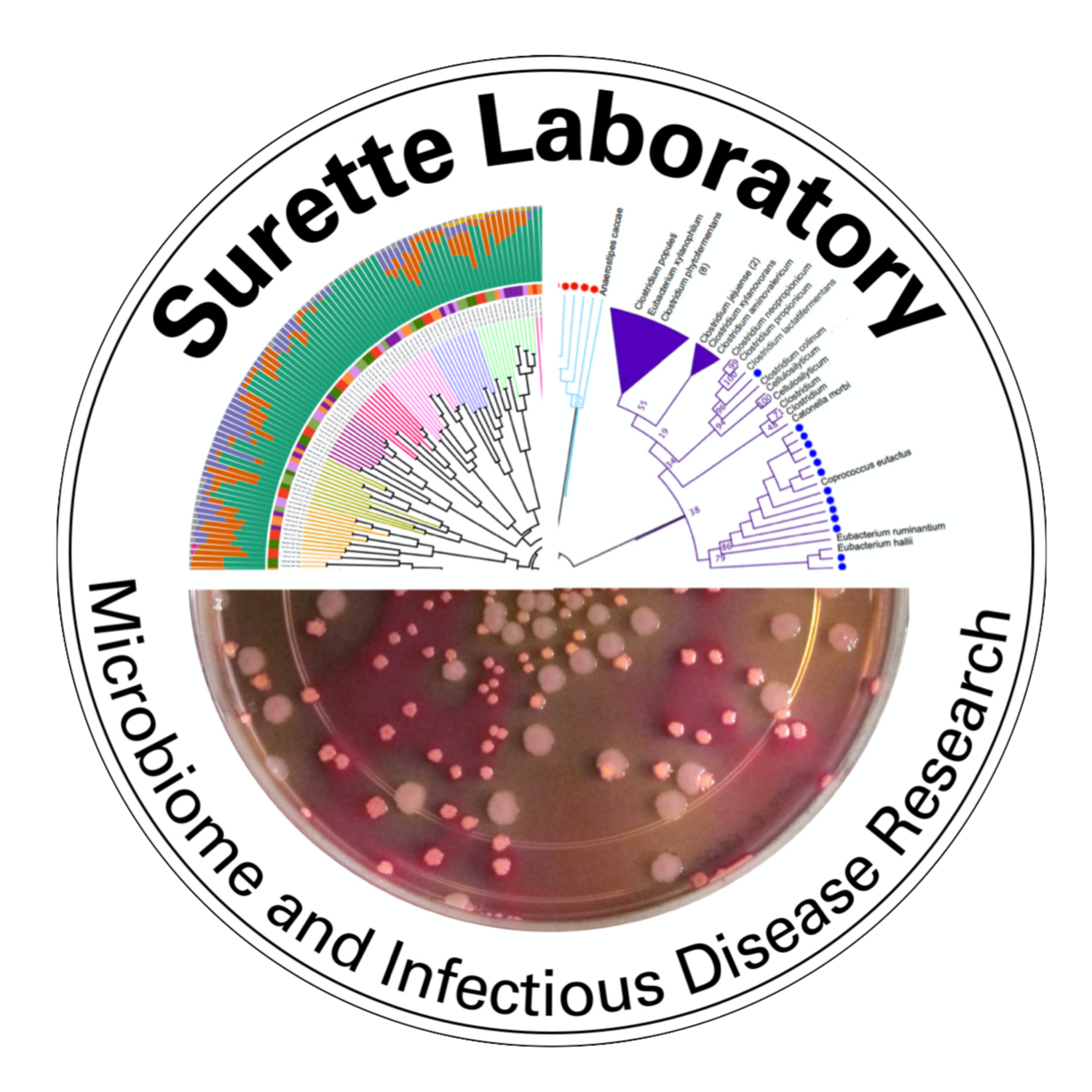
Laboratory for Interdisciplinary Microbiome Research
The human microbiome is now recognized to impact almost all aspects of human health and disease. The Surette lab investigates the human microbiome of the respiratory and gastrointestinal systems. The lab is focused on developing high throughput culturing and phenotyping methods to investigate infectious disease, the microbiome, applying and improving next-generation sequencing approaches to characterize the microbiome, and exploiting secondary metabolic products of the human microbiome.
The human body is host to numerous complex microbial communities at different body sites that comprise the human microbiome. These microbes and their dynamic interactions with each other and with the host play critical roles in health throughout the life course particularly in digestion/nutrition and maintenance of immune homeostasis. However, bacteria within the microbiome also contribute to disease: as pathogens, as reservoirs of antibiotic resistance and virulent genes and, when these microbial communities become out of sync with their host (dysbiosis), as drivers of chronic inflammatory diseases. The microbiome can interfere with therapies – degrading drugs and modulating immunotherapies. Alternatively, the microbiome itself can be a source of therapy.
Culturing the microbiome & culture enriched metagenomics
Advances in DNA sequencing technology has driven an explosion of research into the microbiome, primarily through culture-independent methods. However, we and others have shown that culture based approaches reveal greater diversity in the microbiome than detected by culture-independent molecular profiling or shotgun metagenomics. We combined these approaches to explore the diversity and functional capacity of the microbiome using genomics, culture-enriched metagenomics along with the standard culture-independent to study the microbiome across the life course and in the context of numerous disease states.








